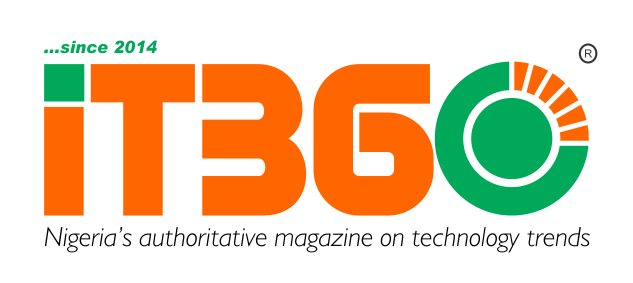Inspired by the ground-breaking spark of decentralised technology, cryptocurrency is akin to a digital wildfire that is swiftly sweeping across the financial landscape, challenging the established structures of the financial ecosystem. Cryptocurrency does not exist in physical form (like paper money) and is typically not issued by a central authority. Unlike traditional currencies like central bank digital currency (CBDC) issued by central banks, cryptocurrencies operate on decentralised networks called blockchain. When a cryptocurrency is minted, created prior to issuance, or issued by a single issuer, it is generally considered centralized. When implemented with decentralised control, each cryptocurrency works through distributed ledger technology, typically a blockchain that serves as a public financial transaction database.
The first cryptocurrency was Bitcoin, which was first released as open-source software in 2009. As of June 2023, there were more than 25,000 other cryptocurrencies in the marketplace, of which more than 40 had a market capitalization exceeding $1 billion. Here are some basic concepts about cryptocurrency:
· Decentralisation
Cryptocurrencies are decentralized, meaning they are not controlled by any central authority like a government or bank. Instead, they operate on a peer-to-peer network of computers, where transactions are verified by multiple participants (nodes) on the network.
· Blockchain Technology
Cryptocurrencies use blockchain technology to record and verify transactions. A blockchain is a distributed ledger that consists of blocks of transaction data linked together in a chronological chain. Each block contains a unique digital signature, called a hash, which ensures the integrity and security of the data.
· Cryptographic Security
Cryptocurrencies use cryptographic techniques to secure transactions and control the creation of new units. Public-key cryptography is used to create digital signatures, which verify the authenticity of transactions. Private keys are used to access and transfer cryptocurrency holdings, and they must be kept secure to prevent unauthorised access.

How does cryptocurrency work?
Blockchain, a distributed public ledger that records all transactions and is updated by currency holders, is the foundation upon which cryptocurrencies operate.
Through a procedure known as mining, which uses computer power to solve challenging mathematical problems that yield coins, units of cryptocurrency are created. Cryptographic wallets can be used by users to store and spend the currencies they purchase from brokers.
You don’t possess anything material if you own cryptocurrency. What you possess is a key that lets you transfer data, or a unit of measurement, from one person to another without the assistance of a reliable outsider.
The Nigerian Economy
· Overview
The Nigerian economy is the largest in Africa and one of the fastest-growing economies in the world. It is heavily reliant on oil exports, which account for a significant portion of the country’s revenue. However, Nigeria is also diversifying its economy by focusing on sectors such as agriculture, manufacturing, and services.
· Current State
The Nigerian economy has faced challenges in recent years, including fluctuations in oil prices, security issues, and limited infrastructure. However, the government has implemented various reforms to attract foreign investment, improve the business environment, and promote economic growth. The country has also seen advancements in technology and digital innovation, with the rise of cryptocurrency playing a significant role in financial inclusion and economic empowerment.
How Cryptocurrency will impact Nigeria’s Economy
Like the rest of the world, Nigeria is evolving. The shift that we are experiencing is towards a digital economy, and cryptocurrencies are a part of that. Nigeria will gain from embracing cryptocurrencies for a number of reasons, some of which we shall discuss in this article.
- Economic Engagement
Without a doubt, economic growth may result from the use of cryptocurrencies. With cryptocurrencies and the blockchain, users will be able to send money more effectively and affordably without the need for middlemen. Their quality of life can be greatly raised by this. Restaurants, grocery stores, and apparel stores are just a few of the businesses and people throughout the world who have begun to accept cryptocurrency as payment. This trend has been greatly aided by the growth of the online casino sector.
In addition, the majority of cryptocurrencies are immune to inflationary pressures because they are decentralised and have a fixed supply. This also implies that there is no central body determining the annual amount of money that must be printed in order to prevent inflationary forces from gradually devaluing current currency units.
- Accountability and Mutual transparency
Recently, there have been bank closures, fraud, cyberattacks, and currency devaluations in the Nigerian banking system. This is an issue that affects both people and companies.
These issues can be resolved by the cryptocurrency market, which offers substitutes that give users more control over their money when they use it for online transactions and improve security and transparency.
We will be able to monitor what goes on behind closed doors and make sure that everyone is held accountable for their activities when blockchain technology is used in all spheres of society, including corporations and government organisations. This will assist society in establishing fair conditions so that everyone has access to necessities. Everyone should have equal access to food, healthcare, and education, irrespective of their social situation. Now consider the kinds of changes that would result from applying this on a worldwide scale.
- Economic Development
A new asset class called cryptocurrency can be utilised for transactions, value storage, and the development of new financial goods. This new asset class has the potential to completely change the way we think about money, which might spur innovation in the banking and financial industries and boost the economy.
Crypto offers an additional means of cost savings. It enables people to take charge of their money and make investments in safe, open, and accessible products. By encouraging people to save money and advancing financial literacy, this can support economic growth.
- Increased Employment
The fact that cryptocurrencies generate jobs is among their most important advantages. The cryptocurrency industry has historically produced a large number of jobs, and as technology advances, more and more jobs will be produced. The employment prospects provided by the cryptocurrency business are no different from those of any other industry. There are numerous ways that cryptocurrency might help Nigerians in Africa find new employment.
The provision of access to financial services that were previously unattainable owing to a lack of infrastructure or constrained funding alternatives is one way that cryptocurrencies can provide job possibilities. Cross-border payments can now be made without going via banks or other intermediaries, thanks to cryptocurrencies. As a result, small companies may take payments from around the world without having to pay the hefty fees associated with using traditional systems.

Is Cryptocurrency Safe?
Blockchain technology is typically used in the development of cryptocurrencies. Blockchain explains the process of grouping transactions into “blocks” and assigning a time stamp. Although it’s a pretty sophisticated and involved procedure, the end product is a digital record of cryptocurrency transactions that is difficult for hackers to alter.
Furthermore, a two-factor authentication procedure is necessary for transactions. To begin a transaction, for example, you might be prompted to provide your username and password. Next, a code of authentication may need to be entered and texted to your personal cell phone.
Cryptocurrencies can still be hacked, even with security measures in place. Numerous expensive attacks have severely harmed cryptocurrency startups. BitGrail lost $195 million and Coincheck lost $534 million to hackers, making these two cryptocurrency attacks of 2018 the largest to date.
In contrast to money that is backed by the government, virtual currencies are solely determined by supply and demand. This may lead to erratic fluctuations that bring substantial profits or losses to investors. Furthermore, investments in cryptocurrencies are protected by considerably fewer regulations than those in more conventional financial instruments like stocks, bonds, and mutual funds.
Conclusion
Is it safe for Nigeria’s economy to use cryptocurrencies if they offer alternatives that offer customers more control over their money while making online transactions and enhance security and transparency? Can a variety of problems be solved by the cryptocurrency market? Given that cryptocurrency is a decentralised form of money that protects users from volatile markets, could Nigeria benefit greatly from it?
The growing number of unsettled questions about cryptocurrencies that people have been considering over time is what has caused a rift in opinions among Nigerians, including the government.


